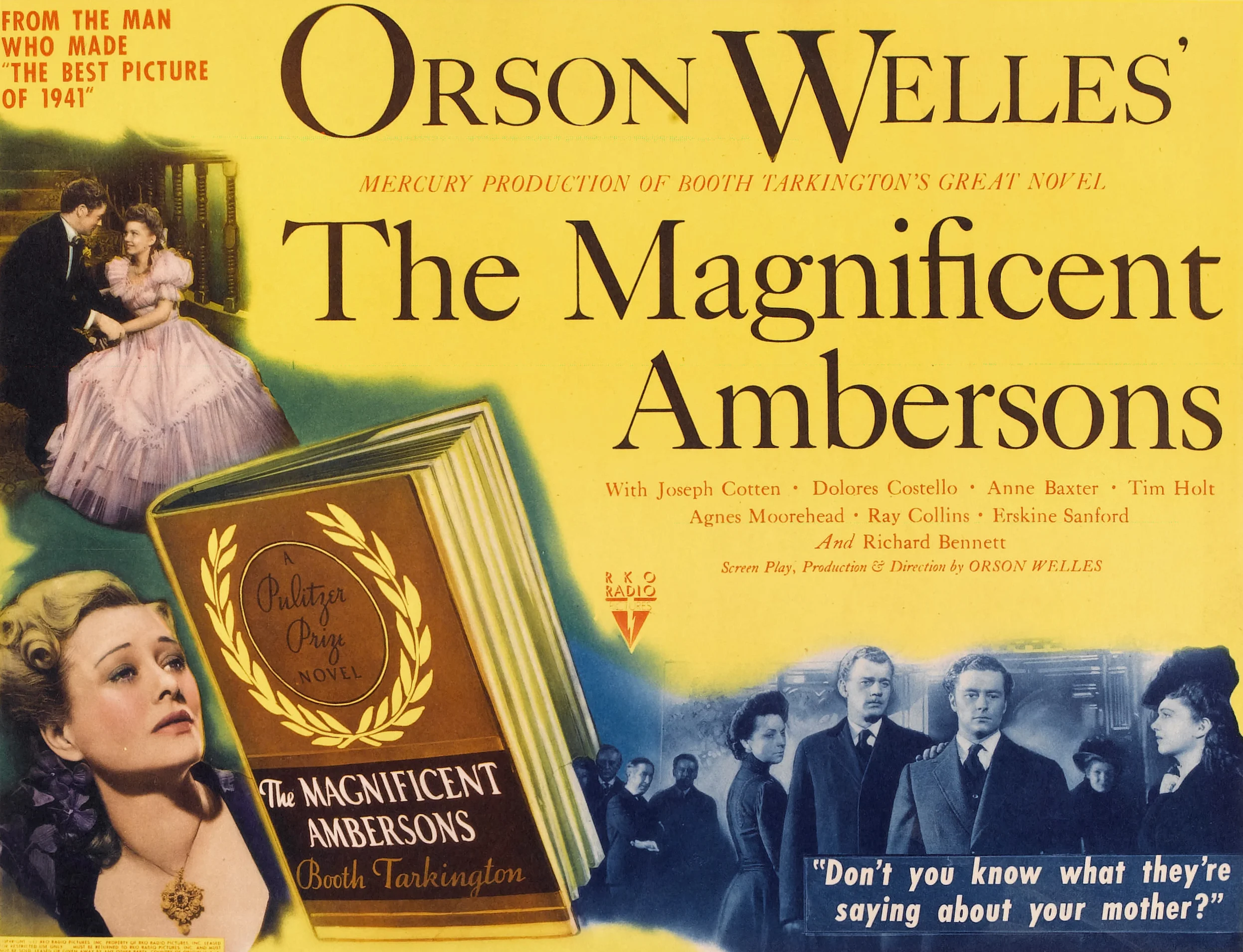On M List of Movie Reviews
(For optimum viewing, adjust the zoom level of your browser to 125%.)
The Magnificent Ambersons (1942)
Rate:
10
Viewed:
3/14, 12/20

3/14:
If you can't get enough of Citizen Kane, The Magnificent Ambersons promises you more of the same.
Written by Orson Welles which was adapted from Booth Tarkington's novel, the plot is sweeping, innovative, and captivating that's
coupled with a wonderful raconteur style. Orson Welles was a rare director because he brought to the screen revolutionary
cinematic elements that had never been done again ever since. They are so advanced that it'll take a genius to
repeat them.
The Magnificent Ambersons is a moral story. The war didn't kill the Ambersons; pride did. It's a swift and shocking
fall from grace. Yet such a tale like theirs was common back then. That's what makes it so interesting: a character's
personality flaw leads to his own family's downfall.
A unique aspect is the dramatic stylized closing screen credits sequence that's capped off by the immortal line: "I wrote the
script and directed it. My name is Orson Welles." Labeled as an egotistical, he caught a lot of flack for it.
Nonetheless, it's powerful.
All in all, like Citizen Kane and
The Lady From Shanghai, The Magnificent Ambersons has to be seen
multiple times for film appreciation.
12/20:
Orson Welles was the master of advanced and complicated scenes.
Citizen Kane, The Magnificent Ambersons, and
The Lady From Shanghai are evidence of his genius
filmmaking. They're strange, deep, and mesmerizing. No one has ever shot black-and-white movies the same way like them. In
a classic dramatic fashion, the wunderkind finishes off The Magnificent Ambersons with his voice-over during the
closing screen credits as the microphone is pulled away: "I wrote the script and directed it. My name is Orson Welles."
Yes, The Magnificent Ambersons is Citizen Kane all over again, but it's still interesting nevertheless: the
downfall of a family because of one man's pride amidst the technological changes. The whole ordeal reminds me of the lavish,
monstrous, and overblown 19th century monuments that were left behind in cemeteries, prompting me to ask, "Who were these
people? What happened to their vast properties because they're all gone?"
The best moment is Lucy Morgan's reaction which is in the form of "who the hell cares?!?" when George told her that he would
be going away for good. Honestly, he's just an insignificant, small-minded man-child who knows nothing about real life. When
George got his comeuppance, he deserved it, and when it happened, people were long past caring.
Terrific performances are rendered by two Mercury players: Joseph Cotten and Agnes Moorehead. Two young thespians make their
presence felt: Tim Holt and Anne Baxter. Playing the mother, Dolores Costello stopped acting afterwards, having been badly
scarred by makeup in her early screen appearances; she was Drew Barrymore's grandmother via marriage to John Barrymore. Orson Welles
doesn't star, but he provides the powerful narration.
All in all, studio interference or not (more than 40 minutes were deleted from the final print),
The Magnificent Ambersons is a Wellesian masterpiece.